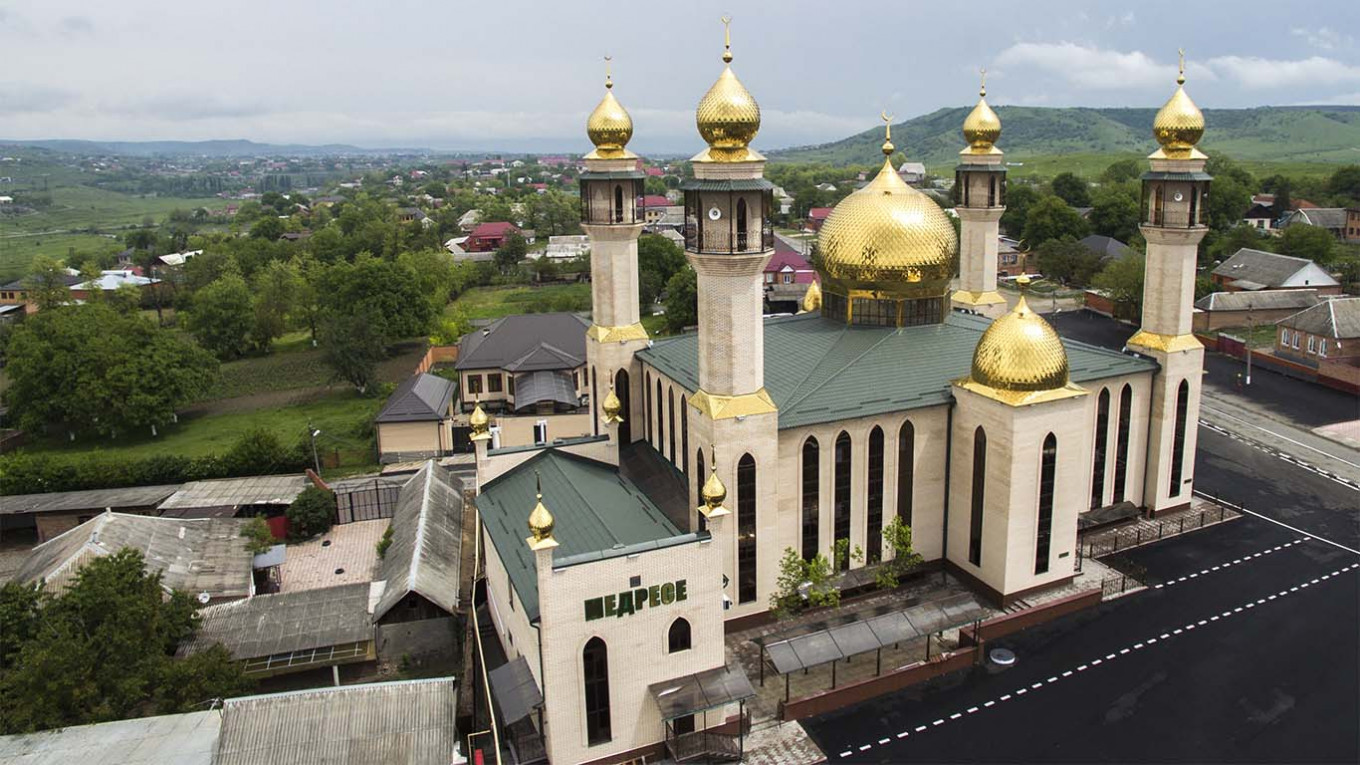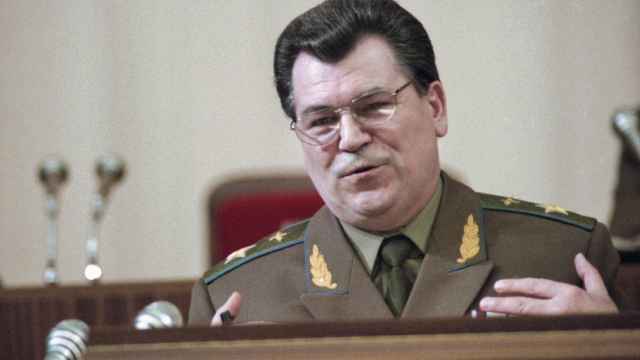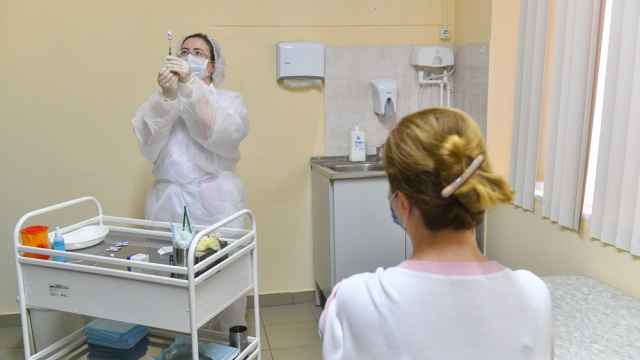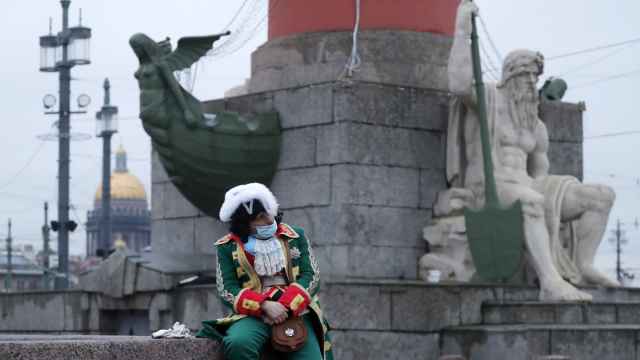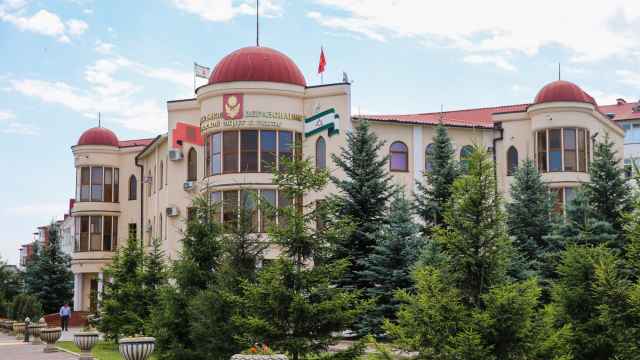In late March, as Russia’s coronavirus outbreak fanned out from Moscow to the country’s provinces, Abdurakhman Martazanov, chief mufti of Russia’s autonomous North Caucasus republic of Ingushetia, started to worry.
Before many Russians had grasped the reality of the pandemic facing their country, Martazanov put together a set of guidelines allowing Ingushetia’s mostly Muslim population to observe their religion without jeopardizing public health. The faithful were told to pray at home rather than in mosques, funerals were to be kept small with social distancing observed and ritual washing of the dead was to be organized by hospitals.
Barely two weeks later Martazanov was admitted to hospital with acute respiratory symptoms in Nazran, the republic’s largest city. He died the next day, after testing positive for Covid-19. Buried according to anti-virus guidelines he himself had drawn up, the Islamic religious leader was the second fatality of his tiny republic’s coronavirus outbreak.
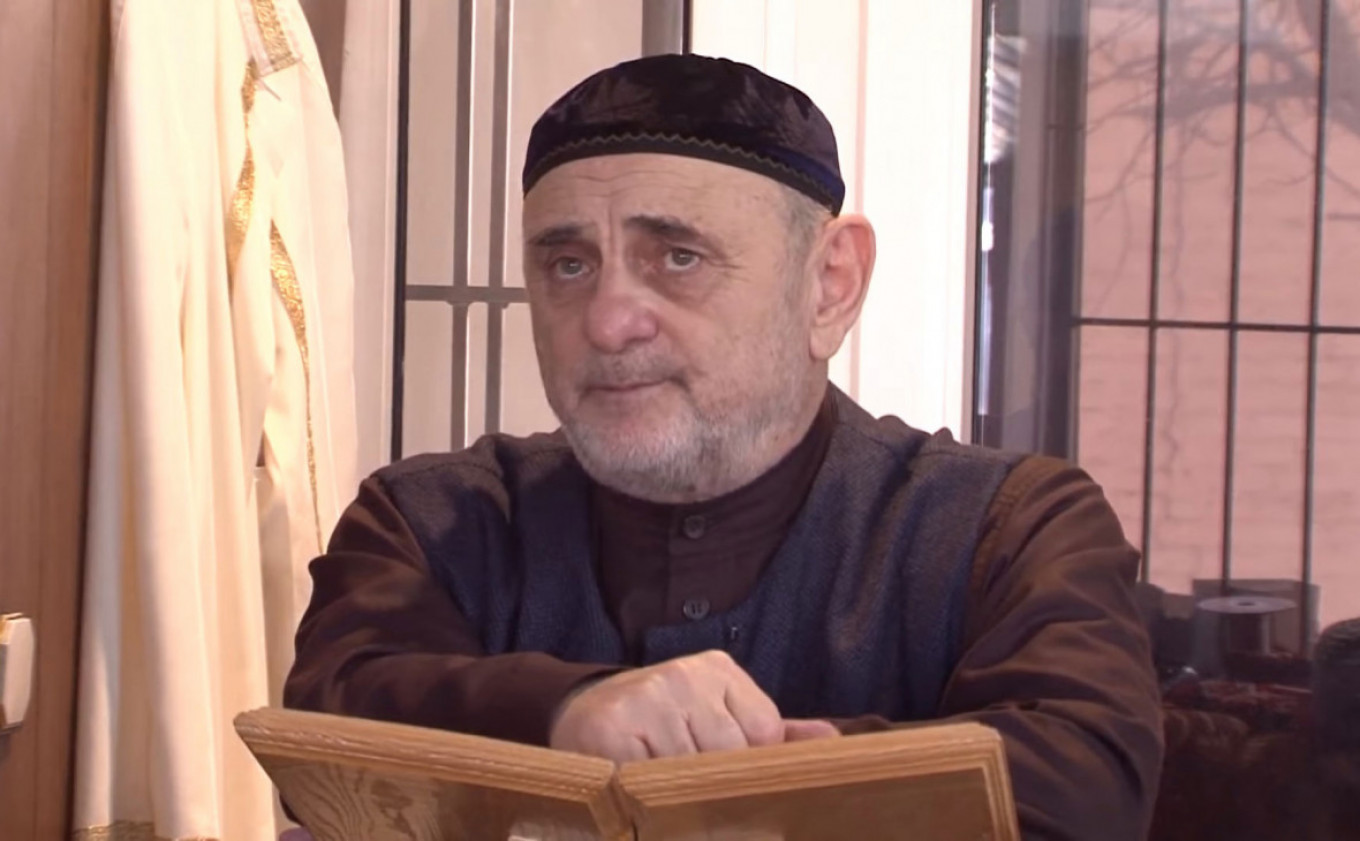
Since the coronavirus first reached Ingushetia local authorities have registered 354 confirmed cases and 12 deaths. With a population of barely 500,000, that’s a per capita infection rate of almost 700 per million inhabitants, far higher than any other Caucasian region, and almost twice that of Russia as a whole.
Many blame pre-existing factors, including chronic poverty and political unrest for the severity of Ingushetia’s situation.
“Of course our hospitals have problems and shortages, especially of personal protective equipment, just like anywhere else in Russia,” one local doctor told The Moscow Times on condition of anonymity. “But I don’t think our healthcare is bad enough compared to the rest of the country to have created an outbreak on this scale.”
At around the size of Rhode Island, Ingushetia is among Russia’s smallest, poorest and most densely populated regions. While several other remote regions, including the far-northern Komi Republic have experienced intense and localized Covid-19 outbreaks, Ingushetia faces a range of wider problems.
It lags other regions in testing, having only administered 2677 coronavirus tests of around two million reportedly taken nationwide. However, few of the locals The Moscow Times spoke to blamed health services for the scale of the republic’s outbreak.
Ever since the Ingush government approved an unpopular land swap with neighboring Chechnya in 2018, Ingushetia has been especially restive, even by the standards of the often-troubled North Caucasus. Widespread outrage at the deal with Chechnya spilled over into months of street protests in the Ingush capital, Magas, and Ingush leader, Yunus-Bek Yevkoruv, resigned last year.
Many locals now say that the land deal, coupled with underlying problems of corruption and poverty, has made the Ingush government so unpopular that much of the population now refuses to believe the region’s leadership on anything, including the coronavirus. This has led people to be skeptical of all government action surrounding Covid-19, ranging from suspicions of a cover-up, to disbelief in the virus’s existence.
“Trust has completely collapsed between the government and the people,” said Izabella Yevloyeva, an Ingush journalist forced to leave the region during the land-deal protests who now lives in Prague. “A lot of people just assume that the coronavirus is a government conspiracy to keep them under control.”
Yevloyeva added that when she published figures on the coronavirus in Ingushetia, readers accused her of lying and promoting fake, pro-government statistics. This instinctive suspicion of the regional government means that the self-isolation regime in force since March is not being observed, she suggested.
Against government instructions, weddings, funerals and other gatherings are continuing as before. Over the weekend, much of the population of Nesterovskaya, a town near the Chechen border, turned out to search for, and eventually find, a missing child, despite official discouragement.
Local authorities themselves have admitted that their social distancing orders are not being obeyed. In an emotional Sunday night video address Makhmud-Ali Kalimatov, head of the Ingush government, blamed “those who irresponsibly post fabrications on social media” for fuelling the republic’s explosion in cases.
“All we ask is that people strictly adhere to the self-isolation regime,” said Kalimatov. “Help us, or at least don’t obstruct us.”
Ironically, the authorities’ perceived failure to get to grips with the pandemic has many Ingush admiring the public health approach taken by Ramzan Kadyrov, the Chechen leader whose land swap discredited the Ingush authorities. In much larger Chechnya, where Kadyrov has called for quarantine breakers to be killed, Covid-19 cases are much fewer than in Ingushetia.
“I may not agree with Kadyrov’s undemocratic approach,” said Yevloyeva, “but harsh measures do seem to have worked in Chechnya.”
Many of Ingushetia’s problems are common to other regions in the North Caucasus. In the neighboring republic of North Ossetia, the economic fallout of strict self-isolation rules has fuelled protests against an unpopular regional government by locals subscribing to similar conspiracy theories casting doubt on the existence of coronavirus. However, many locals see the situation in Ingushetia as uniquely dangerous for public health.
“This kind of distrust of government exists everywhere in Russia,” said Ruslan Mutsolgov, leader of the Ingush branch of liberal opposition party YABLOKO. “But here in Ingushetia, it’s especially huge.”
Plea for aid package
Many suggest that the republic’s socio-economic situation is to blame for the failure of social distancing and the severity of its Covid-19 outbreak. Ranked 79 of 83 Russian regions by GDP, and with unemployment officially at 26%, Ingushetia’s economy is likely too weak to sustain self-isolation without substantial financial support.
“If you want to order people to self-isolate, fine,” said Mutsolgov. “But you have to provide them with support to do so. Almost no one in Ingushetia has any kind of financial cushion, so if we’re going to fight the virus, then the government has to provide one.”
Though the Ingush government has begun distributing aid to the poorest households, Mutsolgov believes it is still insufficient. His party has published an open letter to the republic’s government, demanding a comprehensive aid package, including support for small businesses and compensation for lost wages, as a way to rally the Ingush population behind self-isolation measures.
“We’re only going to survive this if the government supports the people. Without support, this situation will only get worse.”
A Message from The Moscow Times:
Dear readers,
We are facing unprecedented challenges. Russia's Prosecutor General's Office has designated The Moscow Times as an "undesirable" organization, criminalizing our work and putting our staff at risk of prosecution. This follows our earlier unjust labeling as a "foreign agent."
These actions are direct attempts to silence independent journalism in Russia. The authorities claim our work "discredits the decisions of the Russian leadership." We see things differently: we strive to provide accurate, unbiased reporting on Russia.
We, the journalists of The Moscow Times, refuse to be silenced. But to continue our work, we need your help.
Your support, no matter how small, makes a world of difference. If you can, please support us monthly starting from just $2. It's quick to set up, and every contribution makes a significant impact.
By supporting The Moscow Times, you're defending open, independent journalism in the face of repression. Thank you for standing with us.
Remind me later.



